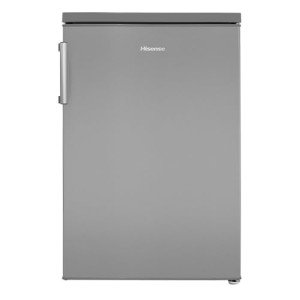10 Things You Learned In Kindergarden They'll Help You Understand Fridges

Understanding Refrigerators: A Comprehensive Guide
Refrigerators, frequently referred to as fridges, are crucial devices in modern families and business establishments. They play a vital function in protecting food and drinks, guaranteeing they stay fresh and safe for consumption. For many years, developments in technology have actually changed the simple fridge into an advanced appliance that comes equipped with numerous features and performances. In this article, we will check out the different types of refrigerators, crucial features to think about when acquiring one, and maintenance ideas to extend its life expectancy.
Kinds of Refrigerators
When it comes to fridges, there is a multitude of choices available in the market. Each type deals with various needs and choices, making it essential for customers to comprehend their qualities. Below is a summary of the primary kinds of refrigerators:
| Type | Description | Pros | Cons |
|---|---|---|---|
| Top-Freezer | A conventional design with a freezer compartment above the refrigerator section. | Cost-effective, familiar design | Limited storage area for fresh food |
| Bottom-Freezer | Features a freezer compartment situated at the bottom for much easier access to fresh food. | Ergonomic design, more fresh food area | Freezer might need flexing to access |
| Side-by-Side | Split vertically, with the freezer on one side and the refrigerator on the other. | Practical access to products, sufficient storage space | Narrow storage bins |
| French Door | Integrates a bottom freezer with double doors for the refrigerator section, using versatility. | Stylish design, easy access to foods | Greater price point |
| Compact Fridge | Smaller sized systems developed for restricted spaces such as dormitory spaces or workplaces. | Space-efficient, portable | Restricted storage capability |
| Smart Fridge | Geared up with Wi-Fi connection and touch screens, making it possible for users to handle groceries digitally. | High-tech features, energy-efficient | Costly and may require updates |
Key Features to Consider
When buying a refrigerator, it's necessary to examine particular features to guarantee it meets your needs. Here are key aspects to consider:
Size and Capacity
- Guarantee the fridge fits your kitchen area.
- Think about the overall capacity based on your home requires.
Energy Efficiency
- Look for ENERGY STAR rankings to ensure energy efficiency, which can save on electricity costs.
Cooling Technology
- Examine if the fridge utilizes traditional cooling, double cooling, or advanced technologies like inverter compressors for much better performance.
Storage Options
- Examine shelving versatilities, crisper drawers, and adjustable compartments for effective storage and organization.
End up and Design
- Choose a finish (stainless-steel, matte, and so on) that matches your cooking area design. Keep in mind to consider the overall style, whether sleek or traditional.
Smart Features
- Think about clever fridges if you desire features like temperature control through an app, inventory tracking, and notices when the door is left open.
Upkeep Tips for Refrigerators
Appropriate maintenance can substantially extend the life of a refrigerator. Here's a list of crucial maintenance practices:
- Regular Cleaning: Keep the interior clean and devoid of spills and expired items. Month-to-month cleansing is advised.
- Check Temperature Settings: Ensure the refrigerator is set between 35 ° F and 38 ° F, while the freezer ought to be at 0 ° F to keep food security.
- Clean Condenser Coils: Dust and debris can build up on the coils, minimizing effectiveness. Cleaning them every six months is recommended.
- Inspect Door Seals: Regularly examine the door gaskets for wear and tear. A good seal is critical for keeping temperature.
- Thawing: In older designs, defrost the freezer frequently to avoid ice accumulation. Some contemporary fridges featured auto-defrost functions.
- Keep Vents Unobstructed: Ensure airflow is not blocked by items, which can restrain cooling effectiveness.
- Monitor Food Storage: Properly store foods and prevent overwhelming the fridge, which can limit airflow.
Often Asked Questions (FAQs)
How long do refrigerators normally last?
- Many refrigerators last between 10 to 15 years, depending on the design and upkeep.
What can I do to keep my fridge running effectively?
- Routine cleaning, checking temperature settings, and keeping correct ventilation can improve performance.
Is a wise fridge worth the financial investment?
- If you often cook, entertain, or need innovative features such as remote temperature control and inventory tracking, the financial investment might be worthwhile.
Can my refrigerator cause high electrical power costs?
- Ineffective designs, poor upkeep, or leaving the door open can lead to increased electrical power usage.
What's the distinction in between a top-freezer and a bottom-freezer design?
- A top-freezer fridge has a freezer section above the fridge, while a bottom-freezer model has a freezer drawer at the bottom for ease of access to fresh food.
Refrigerators are essential in modern-day kitchen areas, serving not just as storage for perishables but likewise reflecting advancements in innovation and convenience. With the myriad choices readily available, understanding the types, features, and upkeep can empower customers to make educated decisions. click through the up coming web page can make sure that a fridge remains efficient and functional for years, ultimately improving the general food storage experience in the home. Whether selecting a stylish French door model or a compact fridge for a studio apartment, customers today are geared up with the knowledge to pick the right home appliance for their requirements.

